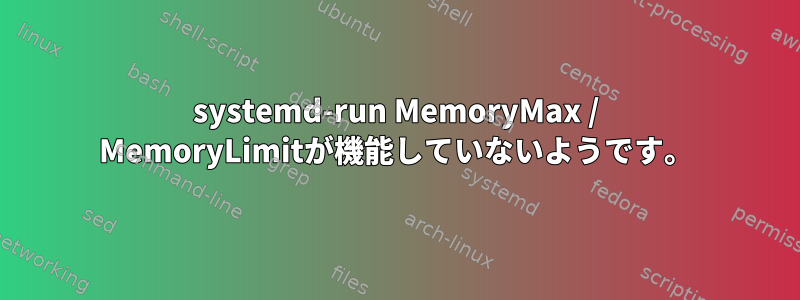
メモリを占有するようにsystemdを設定します。
$ grep Memory /etc/systemd/system.conf
DefaultMemoryAccounting=yes
100Mのスペースを割り当てる小さな実行可能ファイルを作成します。
$ cat test.c
#include <stdlib.h>
#include <stdio.h>
int main() {
void *ptr = malloc(100 * 1024 * 1024); // Allocating 100M
if (ptr == NULL) {
printf("ptr NULL\n");
} else {
printf("ptr allocated\n");
free(ptr);
}
}
しかし、10Mの制限で実行するのは大丈夫です。
$ systemd-run --scope -p MemoryMax=10M -p MemorySwapMax=10M -p MemoryLimit=10M --user ./test
Running scope as unit: run-r9e69896461b94a5f8ab68df8e34bee73.scope
ptr allocated
これが予想される動作ですか?または、設定で何かを逃した可能性があります。
答え1
メモリ制限は、割り当てだけでなく物理メモリ使用量にも適用されます。努力する
#include <stdlib.h>
#include <stdio.h>
int main() {
char * ptr = malloc(100 * 1024 * 1024); // Allocating 100M
if (ptr == NULL) {
printf("ptr NULL\n");
} else {
printf("ptr allocated\n");
for (int i = 0; i < 100 * 1024 * 1024; i++) ptr[i] = ' ';
free(ptr);
}
}
プログラムが終了するのを見ることができます。


